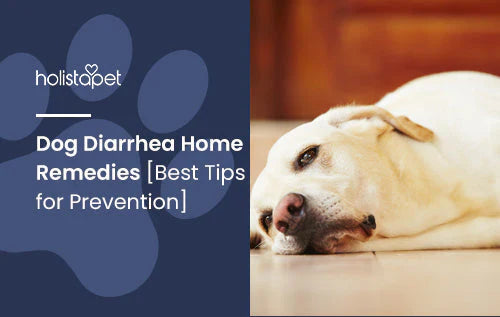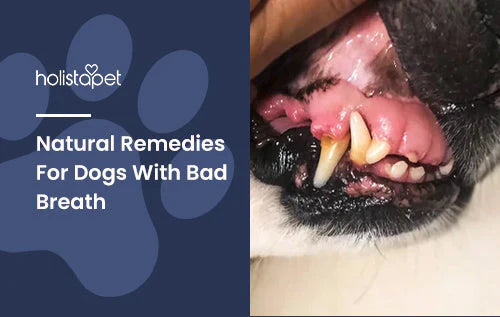Your dog is constantly scratching and chewing itself and doesn't stop. Something is not right. If your dog is displaying these behaviors, take a closer look. You may see redness and irritation of the skin. The first step is to take your dog to a vet to find out what is causing this discomfort. Hives in dogs is a manifestation of allergic reactions. The vet might prescribe medication to address the issue, but what's available if you are looking for a natural dog scratching and hives remedy?
What Are Dog Hives?
Dog hives, also known as urticaria, are a common skin condition characterized by the sudden appearance of raised welts on a dog's skin. These hives can develop anywhere on the dog's body, including sensitive areas like the face, mouth, eyes, legs, throat, and ears. When there are hives in dogs, pet parents may notice several telltale signs, including:
- Redness and Swelling: Hives often manifest as red, raised welts that can appear on the face and other parts of the dog's body. The affected skin may look irritated and inflamed, with the swelling occurring in localized areas.
- Itchiness and Excessive Scratching: Itchy skin is a common symptom associated with hives. Dogs may scratch or rub against objects to relieve the discomfort, which can exacerbate the irritation and potentially lead to skin rashes or bacterial infections.
- Drooling Due to Swollen Lips: Swelling can occur in the lips, causing the dog to drool excessively. This can be a sign of a more severe allergic reaction, especially if the swelling interferes with the dog's ability to eat or breathe properly.
- Closed, Swollen, and Itchy Eyes: Hives around the eyes can cause significant swelling, leading to partially or fully closed eyes. This not only causes discomfort but can also affect the dog's vision temporarily.
- Swelling in the Throat: One of the most dangerous symptoms of hives in dogs is swelling in the throat, which can lead to difficulty breathing and an anaphylactic reaction. This life-threatening condition requires immediate veterinary attention, as it can escalate to an emergency situation within a few minutes.
Why Do Dogs Break Out In Hives?
Hives in dogs are most commonly caused by an allergic reaction. Allergic reactions are immune responses to specific allergens. An immune response involves the production of antibodies, which release chemicals that cause inflammation. The swollen red spots that you see are a direct result of this inflammation. Hives can be triggered by several allergens, which means that there is not just one cause of your dog's hives. Common causes of hives are:
- Insect bites or stings
- Medications
- Vaccinations
- Plants, such as poison ivy or oak
Dog hives typically last from 1-3 days. Since an allergic reaction causes hives, the welts should disappear once the allergen has moved through your dog's body. It's even possible for your pet's hives to disappear without treatment in a matter of minutes. If your furry friend experiences a particularly strong allergic reaction, various medications can help the dog recover.

Common Treatment Options For Hives
Learning how to get rid of dog hives quickly is important to provide relief and prevent further complications. Here are some of the common solutions provided by veterinarians and other pet experts:
Antihistamines
While not necessarily formulated as dog hives treatment, over-the-counter antihistamines like Benadryl (diphenhydramine) are commonly used to reduce the allergic reaction. Always consult your vet for proper dosage based on your dog's size and health condition.
Corticosteroids
In more severe cases, a veterinarian may prescribe corticosteroids to rapidly reduce inflammation and swelling associated with hives. These medications are typically used for short-term relief to avoid side effects.
Epinephrine (EpiPen)
In cases of severe allergic reactions, such as anaphylaxis, a pre-dosed epinephrine injection (EpiPen) may be required to quickly counteract the symptoms of hives in dogs. This emergency treatment is crucial for preventing life-threatening conditions, and pet owners should always consult a vet if an EpiPen might be needed for their dog.
Topical Treatments
Soothing oatmeal baths, aloe vera gels, or specially formulated anti-itch creams can help calm irritated skin and reduce itching. These are often used alongside oral treatments to provide additional comfort.
Elimination of Allergens
If hives are caused by an identifiable allergen (such as food, insect bites, or environmental triggers), removing or avoiding the source is essential to prevent recurrence. Your vet may recommend allergy testing to pinpoint the specific cause.
Veterinary Consultation
For recurring or severe hives, it's important to seek veterinary advice to rule out underlying conditions or chronic allergies. Your vet may suggest long-term treatment plans, including immunotherapy or specialized diets.
Best Natural Dog Hive Remedies
If your dog can't seem to stop scratching, there are plenty of solutions the pet parent can do at home. Mother Nature gives us natural remedies that can help our pets cope with hives. Try some of these tips on how to treat dog hives at home:
Oats
Oats have soothing properties and can alleviate itching caused by hives in dogs. The best way to use oats is to make oat paste by cooking the oatmeal and letting it cool. Once cooled, apply the paste to your dog's skin. You can also make an oat bath for your dog's discomfort if there is a lot of itching.
Chamomile and Green Tea
These herbal teas have skin-soothing and cooling properties. They are best for itchy, irritated skin. You can either make a chamomile or green tea bath for your dog or drip the tea over the irritated areas.
Apple Cider Vinegar And Water Spray
An equal mixture of apple cider vinegar and water can do the trick. Apple cider vinegar has antiseptic and anti-fungal properties, making it effective for irritation from poison oak. Be sure not to use this on any broken skin, as the vinegar will cause great irritation and possibly worsen the situation.
Coconut Oil
Coconut oil contains anti-fungal and antibacterial properties that help treat irritated skin while keeping the skin nourished. Apply solid coconut oil directly onto your dog's skin to reduce irritation and dryness.

Using CBD Oil To Treat Dog Hives
If the remedies mentioned above aren't doing the trick, our premium CBD oil drop may work as a natural remedy for hives in dogs. Let's take a look at what CBD actually is, and what it may do. To begin with, we must know that CBD is not yet approved or meant to prevent, treat, or cure any ailments or diseases.
We do know, however, that it interacts with the endocannabinoid system (ECS). Dogs, like humans, have an ECS that interacts with cannabinoids. You can use CBD dog treats, CBD capsules, CBD topicals, or CBD oil to administer CBD to your dog. The ECS is responsible for regulating several key functions of the body.
One of the most notable functions is the regulation of the immune system. Dogs with hives usually show symptoms of irritation, facial swelling,, and inflammation. Fortunately, the ECS may help to reduce this inflammation by suppressing the inflammatory response. CBD may be helpful for:
- Soothing the skin
- Promoting a calm state
- Promoting a healthy coat
CBD Dosing Suggestions
When determining the correct CBD dosage for dogs, several factors must be considered, including the dog's size, weight, individual health conditions, and the concentration of CBD in the product. As a general guideline, most veterinarians recommend starting with a low dose, typically around 0.1 to 0.2 milligrams of CBD per kilogram of body weight, administered once or twice daily. Gradually increasing the dosage, while closely monitoring the dog for any signs of adverse reactions, is a common approach to finding the optimal dose.
For chronic conditions such as arthritis or anxiety, a higher dose (up to 1 mg/kg) may be appropriate under veterinary guidance. It's essential to use a product specifically formulated for pets and free from THC, which can be harmful to dogs. Additionally, consultation with a veterinarian is strongly recommended before introducing CBD to ensure safety and effectiveness, particularly if the dog is on other medications.
Is CBD Safe For Dogs?
CBD is generally safe for your dog. It is non-intoxicating, so it most certainly will not get your dog high. CBD comes from the hemp plant, which naturally contains a high CBD to THC ratio. Many CBD products contain zero THC, which can be ideal for your dog. In addition, CBD has minimal side effects that will most likely not be problematic for your dog. These side effects may include:
- Dry mouth: CBD may affect saliva production, resulting in a dry mouth and a sensation of thirst.
- Lowered blood pressure: CBD in high doses may cause a small drop in blood pressure, along with slight light-headedness.
- Drowsiness: CBD promotes relaxation, in high doses, it may cause drowsiness.
That being said, the adverse effects that may occur are a result of drug interactions. Therefore, it is always best to consult your vet before using CBD for your dog's diet.

Final Thoughts - Natural Remedies for Dog Hives
If your dog has allergies, be sure to consult a vet about hive prevention. If you're unsure whether your dog has allergies, there are several at-home test kits available. When your pooch can't seem to stop scratching themselves, there are several home remedies you can try that may soothe their skin.
If the scratching turns out to be hives, monitor your pet carefully. Hopefully, the swelling does not reach their face or airways, and the hives go away within three days. If so, help your dog cope with the symptoms using some of our tips. Although CBD is not an approved or regulated drug, it may help promote a soothing and calming effect for your dog. Should the hives become severe, take your pet to the hospital. Read here for more information.







![Probiotics For Dogs [Soft Chews] - HolistaPet](http://www.holistapet.com/cdn/shop/files/Probiotic-Infographic-1_472d7a29-e30c-435a-9638-1365d8c3a9f9.jpg?v=1725384841&width=104)



























Leave a comment
All comments are moderated before being published.
This site is protected by hCaptcha and the hCaptcha Privacy Policy and Terms of Service apply.